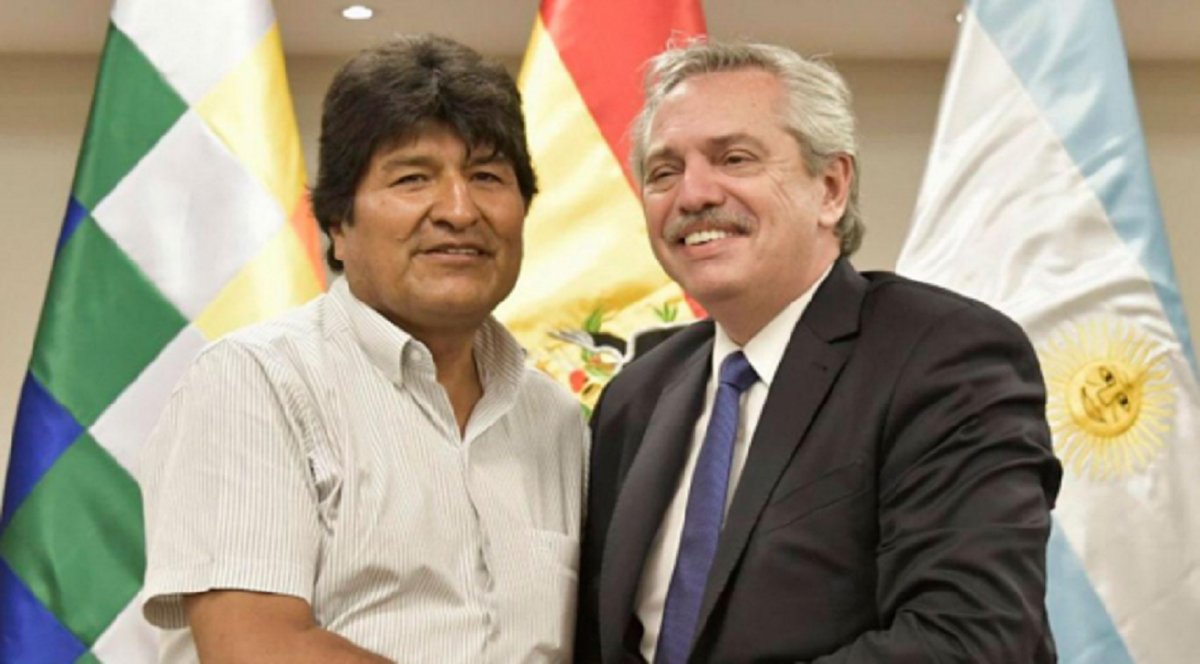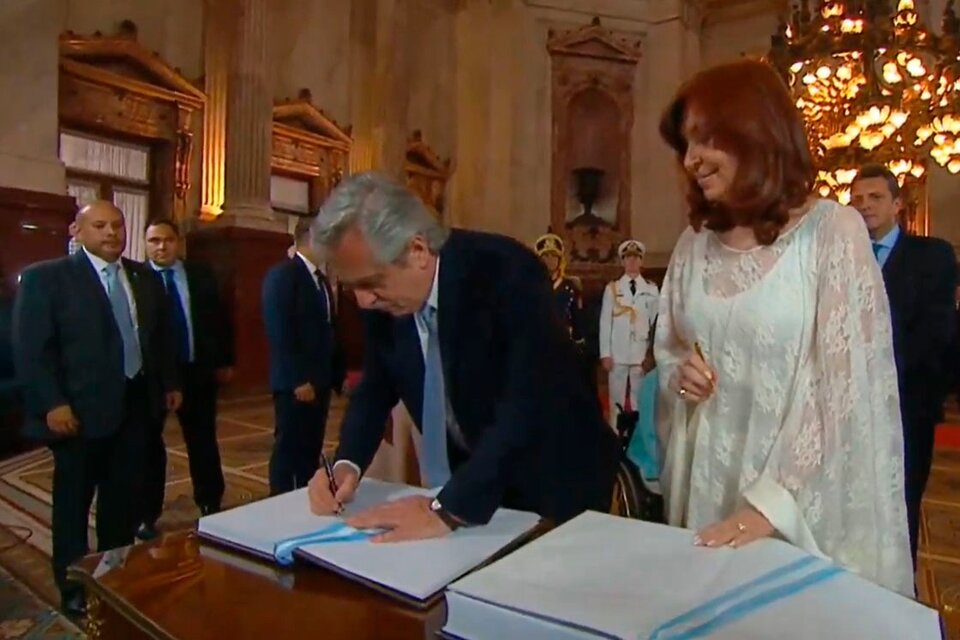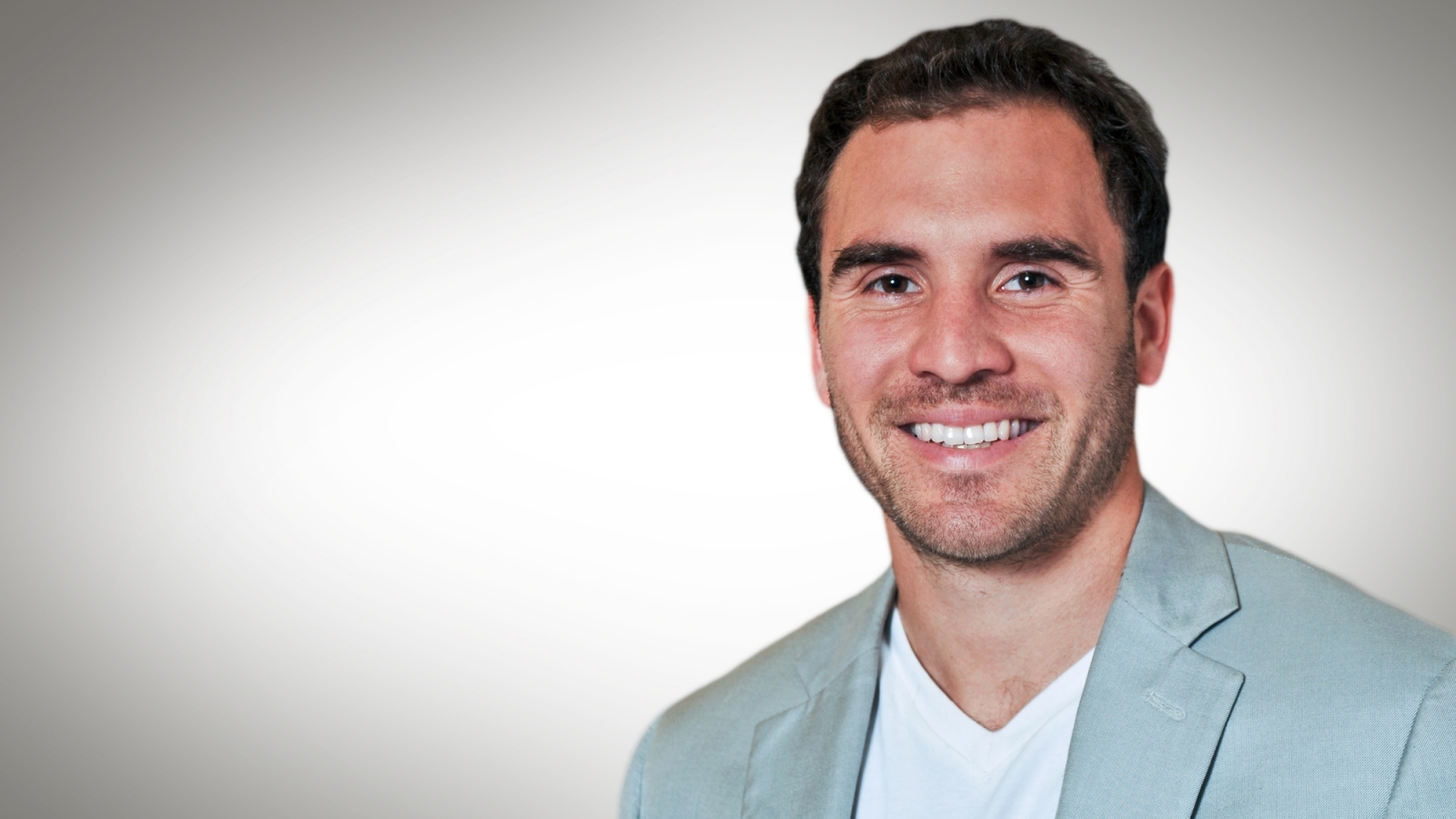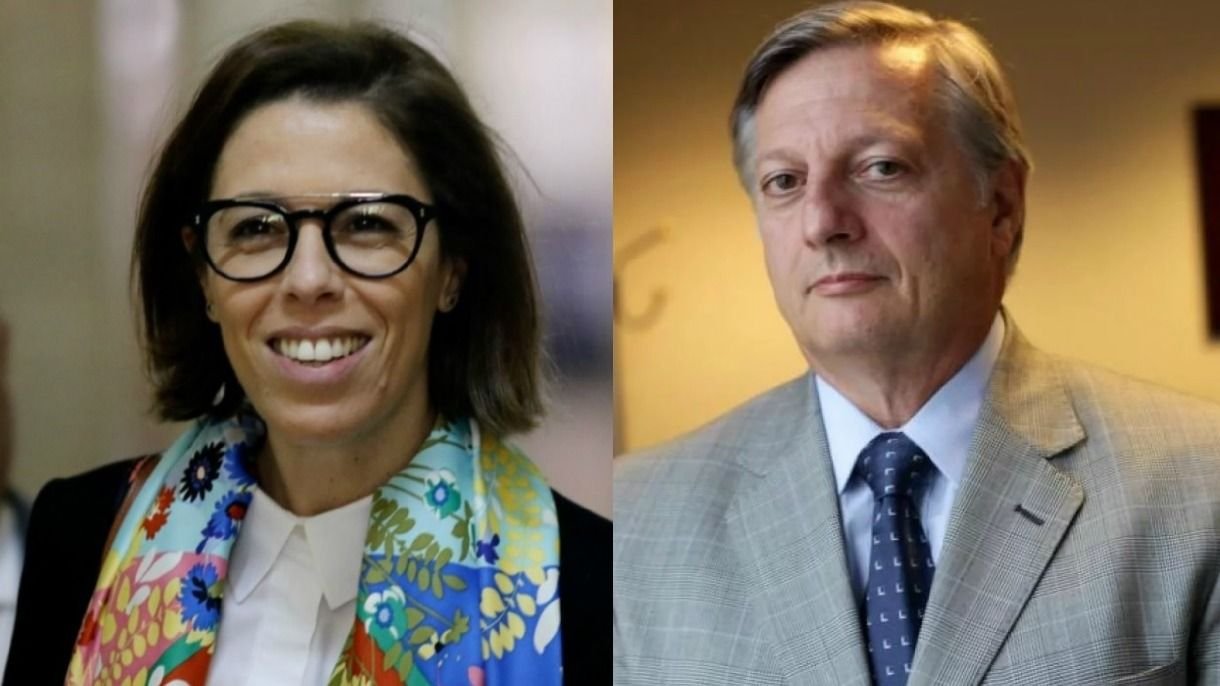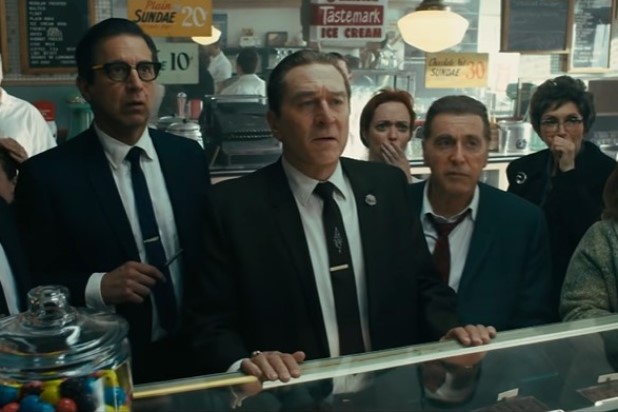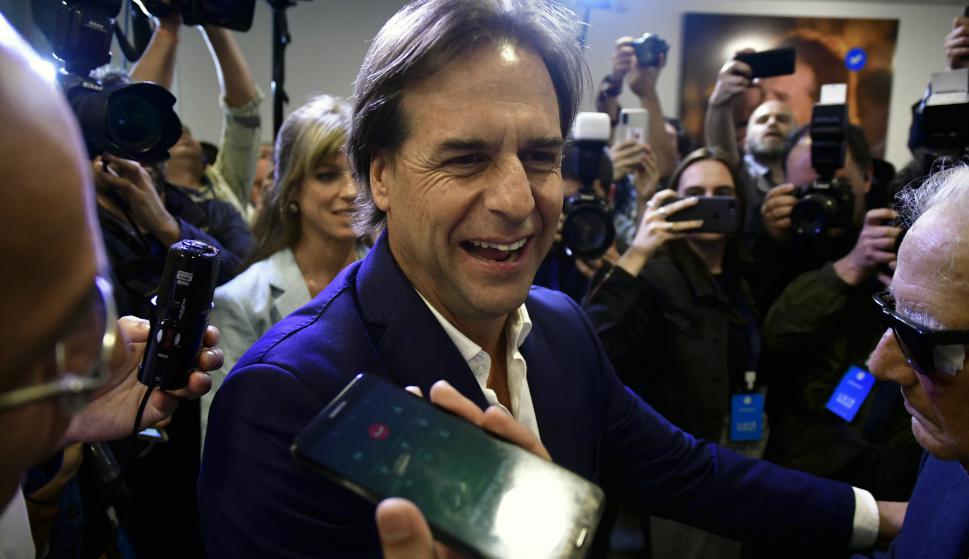peppertree
peppertree's JournalEvo Morales arrives in Argentina seeking political asylum
Former Bolivian President Evo Morales arrived in Argentina, Bolivia's southern neighbor, Thursday morning.
"I've come to Argentina to continue my struggle," Morales told reporters. Argentine Foreign Minister Felipe Solá confirmed he would be granted political refugee status by President Alberto Fernández, who took office Tuesday.
The former head of state arrived at Pistarini International Airport, near Buenos Aires, from Cuba this morning. Morales joins his two sons, Evaliz and Álvaro, who arrived in Buenos Aires on November 23.
He was accompanied by four other ex-government officials, including his former Vice-President Álvaro García Linera, former Health Minister Gabriela Montaño, former Foreign Minister Diego Pary, and Bolivia's former Ambassador to the OAS José Alberto Gonzales.
Morales, according to Foreign Minister Solá, had "requested asylum at the time" of his November 10 ouster - but former Argentine President Mauricio Macri "did not grant it."
Mexican President Andrés López Obrador granted it instead, and Morales attributed his intervention and that of then President-elect Fernández for "saving my life."
Fernández, who defeated Macri amid an economic crisis, has said he considers Morales' removal from office "a coup d'état."
Morales' self-proclaimed successor, Jeanine Áñez, has ruled by decree and overseen a wave of police violence against protesters and other human rights abuses.
Morales has called for new elections, which Áñez has agreed to - but has repeatedly postponed.
At: https://www.batimes.com.ar/news/argentina/evo-morales-has-landed-in-argentina-confirms-foreign-ministry.phtml
Deposed Bolivian President Evo Morales and Argentine President Alberto Fernández during the latter's presidential campaign this August.
Fernández, who took office Tuesday, has been one of the region's most prominent critics of the violent, November 10 coup in Bolivia.
"It would be an honor for Argentina to have Morales and Álvaro García Linera," he said.
Argentina's Peronists return as Alberto Fernandez takes office
Argentina’s new President, Alberto Fernández, took office today, a sharp gear shift from conservative Mauricio Macri as the Latin American country firefights rampant inflation, credit default fears and rising poverty.
The 60-year-old center-left Peronist politician was sworn in by lawmakers in the Congress building at noon (1500 GMT) before swearing in his newly appointed ministers at the Casa Rosada presidential palace.
Fernández’s arrival marks a return of Argentina’s powerful left-leaning Peronist political flank, including his divisive Vice President Cristina Fernandez de Kirchner, a rockstar populist who clashed with investors and landowners during her twin terms between 2007-2015.
The new administration is expected to usher in growth-focused policies after unpopular austerity under Macri, which could strain already depleted state coffers.
Supporters hope Fernández can tackle inflation running above 50%, poverty at 40% amid the worst recession in two decades, and tricky restructuring talks over around $100 billion in sovereign debt with lenders - as well as a record, $45 billion bailout granted to Macri last year by the International Monetary Fund.
"The Argentina we seek is one that grows with inclusion," Fernández said during his inaugural address. "One that promotes production rather than speculation."
At: https://www.reuters.com/article/us-argentina-politics-inauguration-idUSKBN1YE128
Argentina's new president, Alberto Fernández, signs the congressional visitors' register upon arriving today for his inaugural as Vice President Cristina Fernández de Kirchner looks on.
The pragmatic Fernández, 60, inherits a debt crisis and a near-depression from his neo-con predecessor, Mauricio Macri.
Economic stimulus and debt renegotiation will top next year's agenda, along with the need to navigate an openly hostile Bolsonaro regime in neighboring Brazil (Argentina's closest partner) and an uncertain relationship with U.S. President Donald Trump.
Trump's support for Macri, a longtime friend, included forcing the IMF to lend Argentina a record $45 billion - a debt most analysts consider unpayable without a rescheduling.
Argentine President-elect names Columbia academic Martin Guzman to Economy Ministry
Argentine President-elect Alberto Fernández, who takes office on December 10, presents his future cabinet in a Buenos Aires press conference today.
The key post of Economy Minister, will reportedly be held by Columbia University Associate Professor Martín Guzmán, a close colleague of Nobel Laureate Joseph Stiglitz - whose Columbia office is next door to his.
The Argentine-born Guzmán, 37, a debt specialist at Columbia with a doctorate from Brown University, will bring a sharp academic intellect but little policy-making experience to the task of reviving Latin America’s third largest economy and fending off default.
He will need all his training as Argentina braces for fraught negotiations with creditors to restructure around $100 billion in sovereign debt while steering the recession-hit country back to growth and taming inflation.
Twin crises
Fernández and Guzmán are expected to enact expansionist policies, including higher business and family subsidies, increased public works and social spending, and sharply lower central bank interest rates (currently 63%).
They face twin economic and debt crises, including a $45 billion IMF debt - plus another $160 billion in other public foreign debt, most of which is due within the next four years.
The new administration also inherits an economy reeling from the April 2018 collapse of a carry-trade debt bubble known locally as the "financial bicycle" - a centerpiece of economic policy under outgoing President Mauricio Macri.
The 'bicycle' collapse forced the right-wing Macri to turn to the IMF for an unprecedented $57 billion bailout; but of the $45 billion borrowed, an estimated $36 billion were ultimately used to finance capital flight.
Despite record harvests GDP has fallen 7.4% since the crisis began, with the peso losing 68% of its value and real wages falling 19% as inflation more than doubled to over 50%.
At: https://translate.google.com/translate?hl=en&tab=wT&sl=auto&tl=en&u=https%3A%2F%2Fwww.pagina12.com.ar%2F235018-quien-es-martin-guzman-el-elegido-de-alberto-fernandez-para-
Argentina's Economy Minister-designate Martín Guzmán.
The Columbia University academic and close colleague of Nobel Laureate Joseph Stiglitz inherits a "Macrisis" - twin economic and debt crises left from the financial deregulation and austerity policies that marked the four-year Mauricio Macri administration.
Argentina: Top Macri officials indicted
Federal indictments were issued today in Argentina against former Energy Minister Juan José Aranguren and the current head of the Anti-Corruption Office (OA), Laura Alonso, over charges of self-dealing by Aranguren and obstruction of justice on his behalf by Alonso.
The charges against Aranguren stem from his February 2016 order to import 195 million ft³ of natural gas daily from British Gas, a Chilean-based natural gas importer purchased by Shell Argentina just months before then newly-elected President Mauricio Macri named Aranguren Energy Minister.
The purchase was made after cancelling one from Bolivia - which was 56% cheaper.
Aranguren, 65, was CEO of Shell Argentina from 2003 to 2015, and is still a sizable shareholder in the firm.
He resigned as Energy Minister in 2018 after the Paradise Papers scandal revealed him to be a principal in two Barbados-based offshore companies - including a Shell subsidiary which received large contracts from the Macri administration.
These apparent conflicts of interest were first denounced in 2016 - but the case remained stalled in the courts largely because the Anti-Corruption Office (OA) refused to file charges.
Vulture culture
The OA is headed by Laura Alonso, who has refused to file charges against Macri or his officials in at least 20 cases in which the OA itself recommended them.
Alonso, 46, is the first OA head to belong to the same party (Macri's hard-right PRO) as the administration it is charged with overseeing - and the first to lack a law degree, which the post requires.
She received funding in 2014 by vulture funder Paul Singer, amid Singer's demands for a 1,600% payout on defaulted bonds bought from resellers. Macri's 2016 settlement reportedly netted Singer an 1,180% return.
Alonso and Aranguren become the second and third top Macri officials to be indicted since October 18, when former Social Security Trust Fund (FGS) director Luis María Blaquier was indicted over a 2016 FGS stock purchase in the Clarín Group - in which he was a major shareholder, and on which the FGS lost $22 million.
The Clarín Group, Argentina's largest media conglomerate, are prominent backers of Macri, who on October 27 became the first Argentine president to lose re-election.
Macri, who leaves office on Tuesday, is facing up to 144 charges ranging from corruption, self-dealing, and abuse of power against opponents.
At: https://translate.google.com/translate?hl=en&tab=wT&sl=auto&tl=en&u=https%3A%2F%2Fwww.eldestapeweb.com%2Fnota%2Fcorrupcion-m-procesaron-a-juan-jose-aranguren-y-laura-alonso--201912612170
Anti-Corruption Office (OA) head Laura Alonso and former Energy Minister Juan José Aranguren, indicted today for his self-dealing on Shell gas imports and her role in their cover-up.
Two of the most visible - and controversial - top officials in the outgoing Mauricio Macri administration, they are among over 50 top Macri officials facing charges ranging from corruption to abuse of power.
Argentine courts, which the UN on November 4 accused Macri of pressuring, had long refused to pursue many of these charges - some of which date from 2016.
But they have become more proactive since Macri's October 27 re-election defeat - and since revelations that Macri had been routinely spying on most of the judiciary.
Argentina's Macrisis: Income poverty rises to 40.8%, highest in 15 years
The Catholic University of Argentina's Social Debt Observatory, which publishes a twice-annual survey of living conditions in the country, found that 40.8% of Argentines were living below the poverty line in the third quarter.
This was a sharp increase from the 33.6% recorded a year earlier, and the highest reading since 2005. Extreme poverty - those earning less than 40% of the poverty line - rose from 6.1% to 8.9%, the highest since 2006.
Poverty affected 32.1% of households. Those hardest hit were people in households led by unregistered workers (66.4%) and blue-collar workers (51.8%); some 59.5% of children are now poor.
Income poverty has risen steadily, from 28.2%, since the April 2018 collapse of a carry-trade debt bubble known locally as the "financial bicycle" plunged the country into its deepest recession since the 2001-02 convertibility crisis.
The 'bicycle' collapse forced President Mauricio Macri to turn to the IMF for an unprecedented $57 billion bailout; but of the $45 billion lent, an estimated $36 billion were ultimately used to finance capital flight.
Despite record harvests GDP has since fallen 7.4%, with unemployment rising to 10.6% - the highest since 2006. Those with jobs have seen real wages erode 19% as inflation more than doubled to over 50%.
The crisis has also affected Argentina's sizable middle class: So far this year, real retail sales are down 12.3% and new auto sales are down 43.4%.
Income poverty in those with middle-class occupations jumped from 4.9% last year, to 14.2% currently.
At: https://translate.google.com/translate?hl=en&tab=wT&sl=auto&tl=en&u=https%3A%2F%2Fwww.baenegocios.com%2Feconomia-finanzas%2FUCA-la-pobreza-salto-al-408-y-alcanzo-el-nivel-mas-alto-de-la-decada-20191205-0015.html
Families sift through clothing at a barter market in Villa Carlos Paz, in central Argentina.
These improvised markets, known as trueques, had not been widely seen in around 15 years - but have made a comeback this year after President Mauricio Macri's "financial bicycle" debt bubble collapsed in 2018.
The resulting "Macrisis" led to his defeat in October - making Macri the first Argentine president to lose re-election.
Six more countries join Trump-busting Iran barter group
Paris, London and Berlin on Saturday welcomed six new European countries to the Instex barter mechanism, which is designed to circumvent US sanctions against trade with Iran by avoiding use of the dollar.
“As founding shareholders of the Instrument in Support of Trade Exchanges (Instex), France, Germany and the United Kingdom warmly welcome the decision taken by the governments of Belgium, Denmark, Finland, the Netherlands, Norway and Sweden, to join Instex as shareholders,” the three said in a joint statement.
The Paris-based Instex functions as a clearing house that allows Iran to continue to sell oil and import other products or services in exchange.
The system has not yet enabled any transactions.
Washington in 2018 unilaterally withdrew from the international agreement governing Iran’s nuclear programme and reinstated heavy sanctions against Tehran.
At: https://www.theguardian.com/world/2019/dec/01/six-more-countries-join-trump-busting-iran-barter-group
A Tehran pedestrian eyes exchange rates between the Iranian rial and other currencies.
The Instex barter service may offer Iran a viable way to skirt Trump sanctions, and has caught on in Europe. But as yet, no transactions have been registered.
Not the Onion: Majority of Republicans think Trump a better president than Lincoln
The Economist and YouGov conducted a poll from Nov. 24-26 of 1,500 American adults. In the wide-ranging poll, researchers asked Americans to compare Trump to past U.S. presidents.
53% of Republicans said that Trump is a better president than Lincoln.
For Democrats and Independents, Lincoln is considered to have been the better president with 94% and 78%, respectively.
Republican adults were the only segment polled that considered Trump to be a better president than Lincoln.
At: https://www.msn.com/en-us/news/politics/poll-majority-of-republicans-think-trump-a-better-president-than-lincoln/ar-BBXxDF2
'The Irishman': Robert De Niro, Al Pacino and Joe Pesci revisit the tyranny of the mob
In “The Irishman,” Martin Scorsese’s grand, droll, ruminative valediction to the gangster genre he has done so much to expand since “Mean Streets” (1973).
The story of Teamsters lifer and murder-for-hire hitman Frank Sheeran rests on a 1975 road trip two couples, the Sheerans and the Bufalinos of the Bufalino Pennsylvania crime family, once took together, driving west to Detroit for a politically obligatory wedding, with some business to be conducted along the way.
The movie is about that business, and how it haunts a man to the end of his days.
Scorsese’s production budget, estimated at somewhere between $150 and $200 million, represents his largest ever, and “The Irishman” is his longest running time to date.
The movie’s not trying to compete in sheer “GoodFellas” exuberance with Scorsese’s earlier gangster forays. It moves forward and backward and sideways, getting more unpredictable and compelling as it goes. Then, in the long sequence depicting Sheeran’s testimonial dinner, “The Irishman” turns into a different sort of compelling.
Here, stretching out, setting the fates of the major characters into motion, Scorsese delivers something akin to the bleak grandeur of Coppola’s “The Godfather Part II.” It’s also a tribute to films such as Visconti’s “The Leopard,” in its intimation of doom for a finite ecosystem of blood-stained royalty.
At: https://www.msn.com/en-us/movies/reviews/the-irishman-review-robert-de-niro-al-pacino-and-joe-pesci-revisit-the-tyranny-of-the-mob-%E2%80%A6-and-keep-getting-younger-and-younger/ar-BBXr1vY
Mob lawyer Bill Bufalino (Ray Romano), hitman Frank Sheeran (Robert de Niro), and his eventual victim Jimmy Hoffa (Al Pacino) react to news of the assassination of President Kennedy in Martin Scorsese's The Irishman.
'The Two Popes' proves to be charming buddy movie in vestments
Believers of all religions can agree on one thing: the Vatican is an unlikely place for a bromance.
The novelty of Fernando Meirelles’ The Two Popes is right there in its title. There has only been one leader of the Roman Catholic Church going back centuries except in trying times of, you know, schism.
But Meirelles’ film, from a script by Anthony McCarten (Darkest Hour, The Theory of Everything) concerns a real moment in recent history during an unusual Vatican transition.
In 2013, Pope Benedict XVI, formerly Cardinal Joseph Ratzinger (played by Anthony Hopkins), resigned from the papacy, the first to do so since the 15th century.
The Two Popes takes place just before this momentous decision, as Pope Benedict is mulling it over.
In the film, he summons the Argentine Cardinal Jorge Bergoglio (Jonathan Pryce), his eventual succession as Pope Francis, from Buenos Aires to Rome for a tête-à-tête, or, if you will, a pope-à-pope.
The Two Popes might be an optimistic portrait of the Catholic Church and its leaders. But in these sweetly sincere scenes, you forget Benedict and Bergoglio are pontiff and pontiff-to-be. And the moment of respite from the world’s arguments and divisions feels like a benediction.
At: https://www.batimes.com.ar/news/culture/a-fantasy-of-impossible-intimacy-the-the-two-popes-a-buddy-movie-in-vestments.phtml
Lacalle Pou officially declared Uruguay's next president
Conservative presidential candidate for the National Party Luis Lacalle Pou will be Uruguay's next president, the country's Electoral Court confirmed today.
The National Party nominee won the presidential run-off on November 24, his narrow victory marking an end to a 15-year era of center-left Broad Front administrations in the South American nation of 3.5 million.
While the final vote count is still ongoing, as of 2:30 p.m. local time Lacalle added 7,188 votes to his preliminary total, compared for 3,361 for Martínez - bringing Lacalle's margin to 32,193, or 1.4%.
"The evolution of the vote scrutiny does not change the trend, so we greet President-elect Luis Lacalle Pou with whom I will hold a meeting tomorrow. I thank those who trusted us with their vote from the heart," Broad Front nominee Daniel Martínez tweeted this morning.
"We will continue to defend democracy with more force than ever."
Martínez, 62, won the first round on October 27 by 11%.
But Lacalle secured endorsements from the center-right Red Party - as well as the far-right Open Cabildo Party, whose nominee, retired Gen. Guido Manini Ríos, exhorted fellow officers to vote against the Broad Front to "close the door on communism and gender ideology."
Lacalle, 46, inherits one of Latin America's strongest economies, with GDP growing 4% annually during the Broad Front era - compared to 1.5% in the previous 50 years - while poverty fell from 40% to 8.1%.
The "Macrisis" in neighboring Argentina has pushed Uruguay's small economy into a downturn however, with GDP inching up just 0.1% year-on-year in the second quarter.
At: https://www.batimes.com.ar/news/latin-america/lacalle-pou-officially-declared-uruguays-next-president.phtml
An exultant Luis Lacalle Pou greets reporters after his narrow victory this Sunday, confirmed today by the provisional count vote.
Lacalle's win ends the 15-year center-left Broad Front era, during which the economy grew strongly and previously widespread poverty declined sharply.
Martínez, who conceded defeat this morning, has compared Lacalle to neighboring Argentina's Mauricio Macri, whose "Macrisis" has pushed Uruguay into a downturn.
Profile Information
Member since: Thu May 18, 2017, 12:36 PMNumber of posts: 21,674
